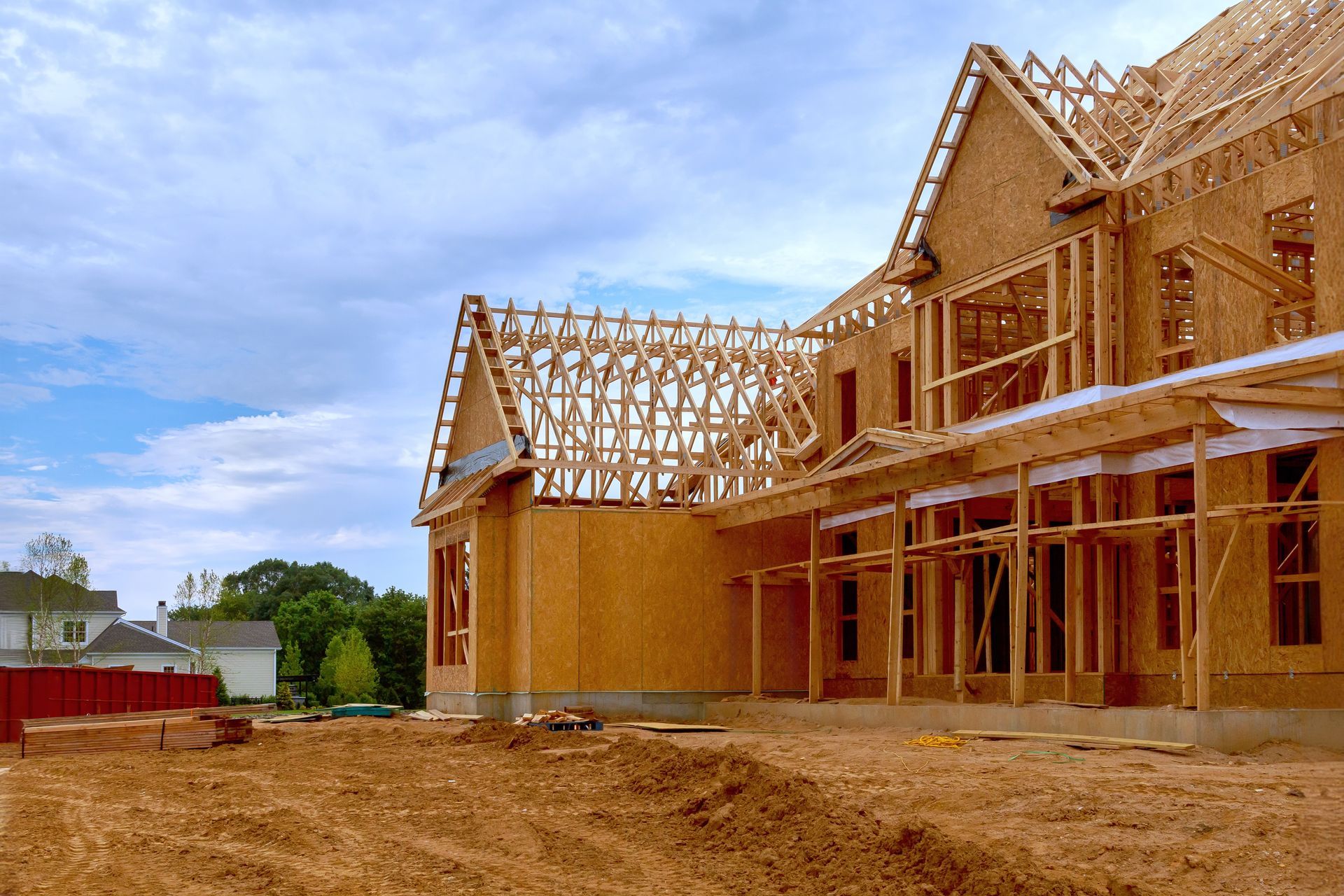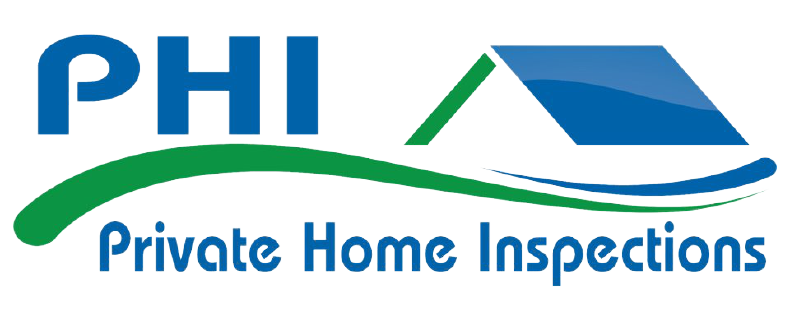Blog

Whether you're buying your first home in Fayetteville, selling property in Peachtree City, or performing routine maintenance on a house in Tyrone, a home inspection is one of the most important steps you can take to protect your investment. At PHI Private Home Inspections, we conduct detailed inspections across South Metro Atlanta, helping clients uncover the hidden issues that could lead to major expenses if left unaddressed. While every home is unique, there are certain problems we find again and again during inspections. Here’s a breakdown of the most common issues we uncover, why they matter, and what homeowners and buyers should look out for. 1. Roof Problems Your roof is your home’s first line of defense — and one of the most common areas where we find problems. Common roof issues include: Missing or damaged shingles Improper flashing installation around chimneys or vents Sagging areas or ponding water Granule loss (especially in older shingles) Evidence of prior patchwork or poor repairs Why it matters: Roof issues can lead to water intrusion, mold growth, and expensive structural damage. In Georgia’s humid, storm-prone climate, a compromised roof can quickly turn into a costly emergency. 2. Electrical Deficiencies Electrical issues are a major concern due to the potential for fire hazards and safety risks. We often find: Exposed wiring or open junction boxes Overcrowded or outdated electrical panels Improperly wired outlets and switches Lack of GFCI outlets near kitchens, bathrooms, or exterior locations DIY modifications that don’t meet code Why it matters: Outdated or faulty wiring can create shock hazards, increase fire risk, and fail to support modern appliances. If you're buying a home built before the 1980s in areas like Downtown Fayetteville or older Peachtree City subdivisions, electrical issues are common. 3. Plumbing Problems From minor drips to major leaks, plumbing issues often hide behind walls and under floors — until they don’t. What we typically find: Leaking pipes or fixtures Inadequate water pressure Improper drain slope or poor venting Corroded supply lines Water heater defects or code violations Why it matters: Plumbing problems can lead to water damage, increased utility bills, and mold growth — especially in crawlspaces, which are common in Southern Georgia homes. 4. HVAC System Failures The hot, humid summers in South Metro Atlanta mean your air conditioning system needs to be reliable and efficient. Unfortunately, we frequently uncover: Dirty or clogged filters and coils Leaking refrigerant lines Damaged ductwork Improper installation Units well past their lifespan Why it matters: An underperforming HVAC system affects both comfort and energy efficiency. It can also lead to poor indoor air quality — especially if moisture buildup creates mold in ducts or attic spaces. 5. Foundation and Structural Concerns A home’s foundation is critical to its stability. While major structural issues are rare, we often identify early warning signs like: Cracks in foundation walls or floors Uneven flooring Sagging beams or joists in crawlspaces Doors and windows that stick or won’t latch Why it matters: Left untreated, minor structural issues can worsen over time and cost thousands to repair. In areas like Fayetteville, where expansive clay soils are common, soil movement can lead to foundation shifting. 6. Moisture Intrusion & Drainage Issues Moisture is one of the biggest long-term threats to a home’s durability and livability. Our inspectors often find: Improper grading or negative slope around the home Clogged or damaged gutters/downspouts Water stains or soft spots on ceilings and walls High humidity or standing water in crawlspaces Mold or mildew buildup Why it matters: Moisture damage can be expensive and dangerous — causing rot, weakening framing, and promoting mold growth that harms air quality. Georgia's frequent rains make effective drainage especially important. 7. Poor Attic Ventilation & Insulation Attics are often neglected, but they play a crucial role in your home’s energy efficiency and roof longevity. Typical issues include: Insufficient or missing insulation Blocked or inadequate vents Signs of rodent or pest activity Moisture buildup or mold on roof sheathing Why it matters: A poorly ventilated attic can increase cooling costs, shorten roof lifespan, and cause condensation problems — particularly during Georgia’s hot summers. 8. Exterior Maintenance & Safety Hazards A home’s exterior isn’t just about curb appeal — it protects the interior from the elements. Issues we find include: Rotting wood trim, decks, or railings Damaged siding or stucco cracks Loose or uneven steps and walkways Inadequate handrails Peeling paint or deteriorating caulk Why it matters: Deferred maintenance on the exterior allows water to infiltrate and creates safety hazards — especially important for older properties near Fayetteville’s historic center or homes with large wooden porches. 9. DIY or Unpermitted Work One of the most frustrating things we see: well-meaning homeowners making repairs or additions without permits or professional oversight. Examples include: Home additions not properly tied into existing systems Non-standard electrical modifications Bathrooms or kitchens with incorrect plumbing setups Decks built without proper support or flashing Why it matters: Unpermitted work can lead to insurance issues, future buyer objections, or even fines. Worse, it often hides deeper safety problems. Final Thoughts: Why a Home Inspection Matters A home may look perfect on the surface — but a professional inspection reveals what’s happening behind the walls, under the floors, and above the ceiling. At PHI Private Home Inspections, we inspect homes throughout Fayetteville, Peachtree City, Tyrone, and surrounding areas with care, thoroughness, and clear communication. Whether you’re buying, selling, or maintaining a home, knowing what to expect can help you avoid expensive surprises and negotiate smarter. Book Your Home Inspection Today Don’t risk buying a home blind. Get the facts from a local expert you can trust. Serving Fayetteville, Peachtree City, and South Metro Atlanta Call (678) 953-8380

Building a new home is an exciting journey, filled with anticipation as you watch your dream home come to life. However, ensuring that every step of the construction process is carried out correctly is crucial to avoid costly mistakes and potential safety hazards down the road. This is where phase inspections come into play. At PHI Private Home Inspections LLC, we offer comprehensive phase inspections to help homeowners and builders maintain quality and safety throughout the construction process. What Are Phase Inspections? Phase inspections are a series of inspections conducted at different stages of the home construction process. They provide an independent review of the work being done, ensuring that each phase meets the required standards and codes before moving on to the next. Phase inspections typically include: Foundation Inspection: The first phase inspection occurs after the foundation is poured but before it is backfilled. This inspection checks for proper depth, width, and reinforcement of the foundation, ensuring it is built to support the home’s structure. Pre-Drywall Inspection: Once the framing, plumbing, electrical wiring, and HVAC systems are installed but before drywall is put up, a pre-drywall inspection is performed. This phase ensures that all the critical systems are correctly installed and that the framing is done according to the plans and building codes. Final Inspection: The final inspection occurs when the home is complete but before the final walkthrough. This inspection ensures that everything is in place, functioning correctly, and meets all safety standards. It also checks that previous issues identified in earlier phase inspections have been addressed. Why Are Phase Inspections Important? Phase inspections provide several key benefits that contribute to the overall quality and safety of your new home: Early Detection of Issues: By inspecting each phase of construction, potential problems can be identified early before they become more significant and more expensive to fix. This proactive approach helps prevent delays and additional costs. Quality Assurance: Phase inspections ensure that the construction meets all local building codes and industry standards. This quality assurance is crucial for the longevity and safety of the home. Peace of Mind: For homeowners, phase inspections offer peace of mind knowing that a professional inspector is overseeing the construction process. This oversight helps to ensure that the home is being built correctly and safely. Accountability: Having an independent inspector involved in the construction process holds builders and contractors accountable for their work. This accountability helps to ensure that shortcuts are not taken and that the highest standards are maintained throughout the project. The Role of the Homeowner in Phase Inspections As a homeowner, staying informed and involved in the construction process is essential. Phase inspections provide you with detailed reports at each stage, helping you understand what’s happening with your home and making informed decisions. If any issues are found, you can work with your builder to address them promptly, ensuring that the project stays on track. Why Choose PHI Private Home Inspections LLC for Your Phase Inspections? At PHI Private Home Inspections LLC, we bring decades of experience and a commitment to excellence to every phase inspection. Our thorough, detailed inspections ensure that each stage of your home’s construction is completed to the highest standards. We work closely with homeowners and builders to provide clear, actionable reports that help keep the project on schedule and within budget. Schedule Your Phase Inspections Today Don’t leave the quality of your new home to chance. Phase inspections are a crucial part of ensuring that your home is built correctly, safely, and to the highest standards. Contact PHI Private Home Inspections LLC today to learn more about our phase inspection services and how we can help you throughout your home-building journey.
